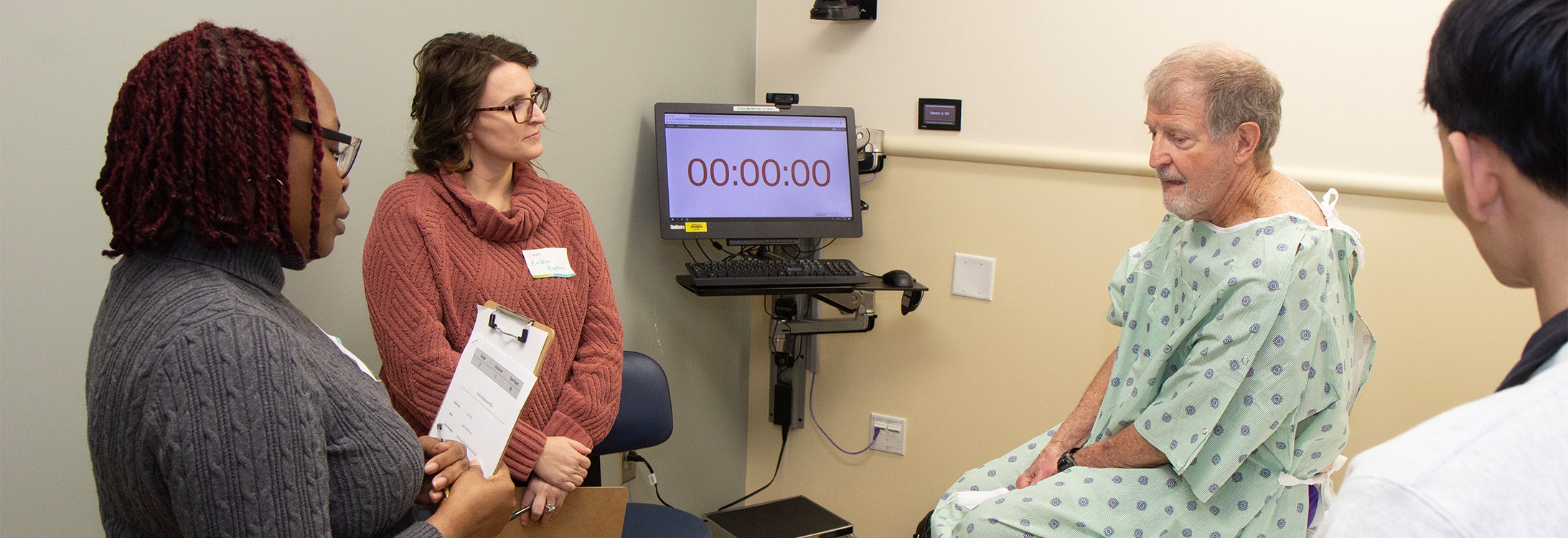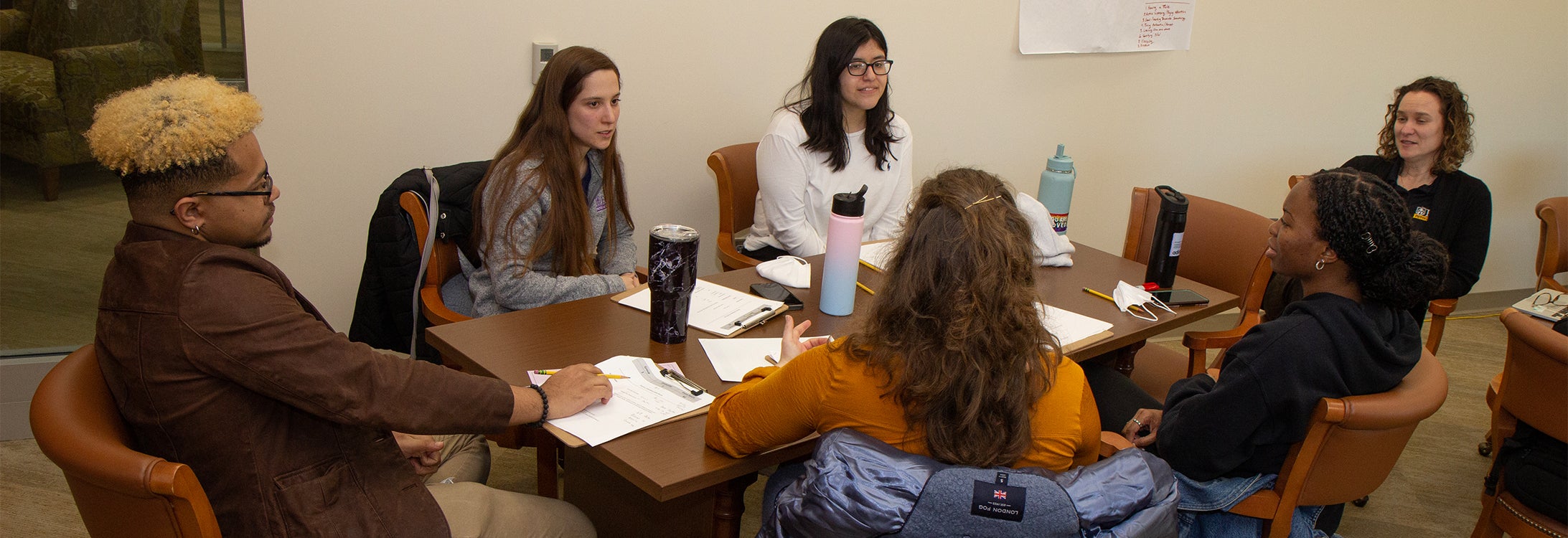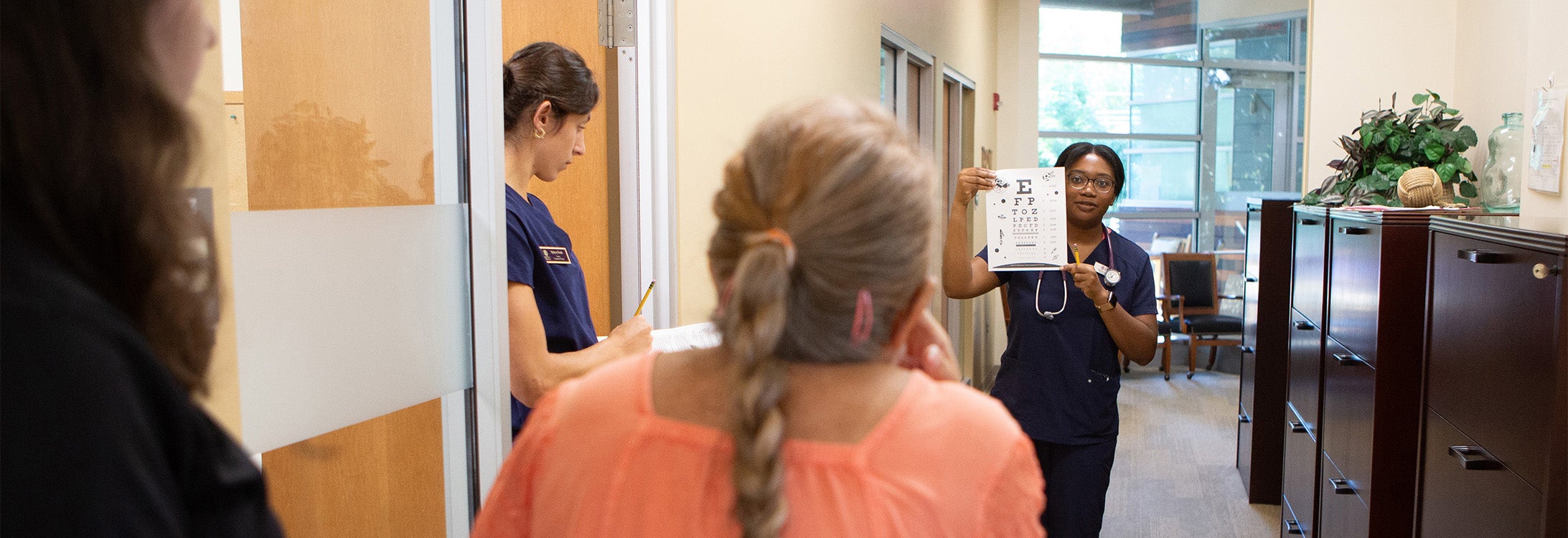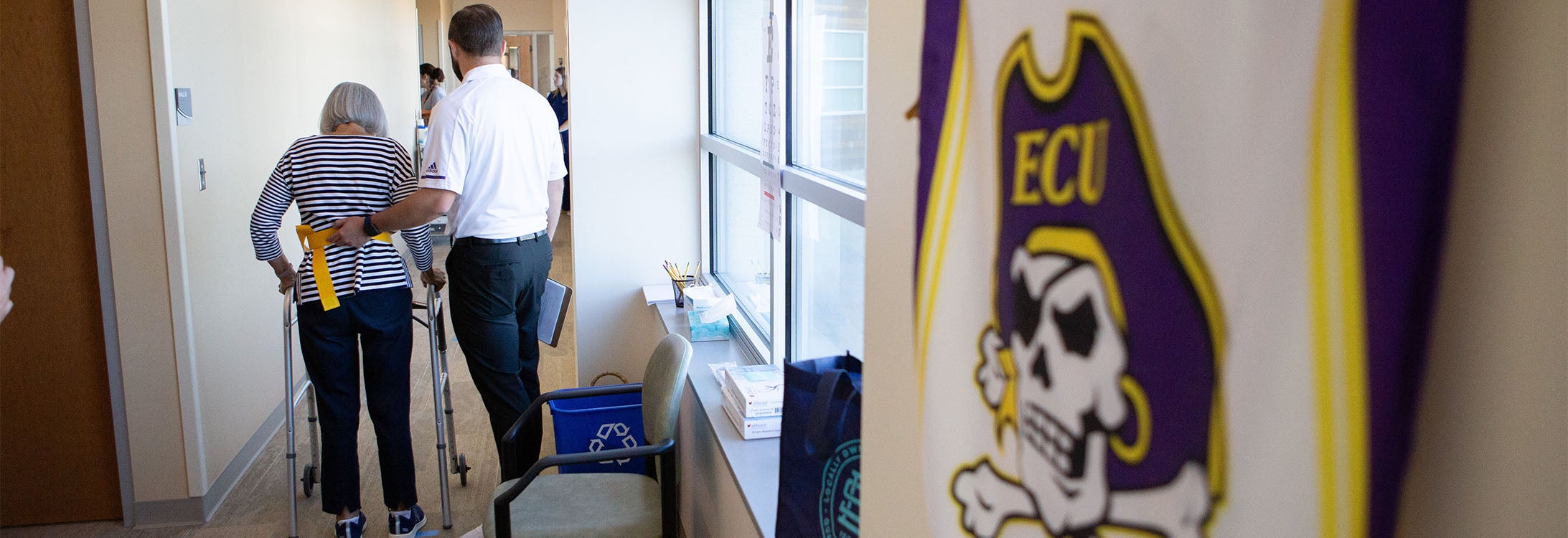Interprofessional Education
Mission
The mission of the College of Allied Health Sciences Interprofessional Education Collaborative empowers individuals to improve the health and wellbeing of eastern North Carolina and beyond by:
- Fostering an environment that values interprofessional collaboration and practice (IPCP).
- Educating students and faculty about interprofessional team skills.
- Providing opportunities to explore and engage in clinical and community collaborations.
Vision
Our vision is to create an interprofessional culture for learners and faculty through professional development, collaborative networking, and interprofessional immersion experiences.
Values
Our values are:
- Professionalism – Promote ethical standards and respect the roles and dignity of the health professionals with whom we work;
- Collaboration – Recognize the value of, and understand our responsibility to educate, service, and perform well on patient-centered teams;
- Discovery and Innovation – Seek new evidence to improve interprofessional education and clinical experiences, within eastern North Carolina and beyond;
- Dedication – Participate and support interprofessional education and collaborative practice through integrated curriculum and special events; and
- Excellence – Strive to enhance all aspects of academic performance to foster tomorrow’s interprofessional healthcare leaders.
Events
Pediatric Case Study
Students in Communication Sciences and Disorders, Occupational Therapy, and Physical Therapy complete a pediatric case study review together in small groups. The interdisciplinary teams discuss possible implementation goals that incorporate each of their discipline perspectives while working with the child.
Opioid Use Disorder Activity
An interprofessional team of faculty host an educational event for students from Addictions and Rehabilitation Studies, Clinical Health Psychology, and Physician Assistant Studies focused on opioid use disorder. Split into interprofessional groups, students learn about each other’s disciplines and how each encounters opioid use disorder before working on a case study together with the help of standardized patient actors.
The event is related to a grant from the U.S. Health Resources and Services Administration (HRSA) focused on meeting the needs of rural, underserved patients in part by including more behavioral health and substance abuse education in PA training.
Truist Workshop: Developing Future Interprofessional Healthcare Leaders
Small groups of students from several direct care, rehabilitation, and health-adjacent programs gather for a day of interprofessional exercises guided by faculty volunteers. This event is sponsored by the Truist Center for Leadership Development.
Fall Risk Assessment
Students in Occupational Therapy, Physical Therapy, and Physician Assistant Studies review a patient case, develop a plan to assess that patient together, and offer recommendations to assist the patient’s rehabilitation. They work in interprofessional teams with the help of standardized patient actors from the Office of Clinical Skills Assessment and Education.
College of Allied Health Sciences New Student Orientation
New Student Orientation introduces graduate and undergraduate students to the concept of interprofessional education. The Interprofessional Education Task Force leads students through an interactive survival activity and discussion. Each small group has representatives from several programs housed within the college, providing the perspective of a diverse range of allied health professions.
Annual Curriculum
Fall Activities
Activity #1: “Patient Voices”
Teams Discussion: “The Importance of Interprofessional Teams and Patient Perspective”
Activity #2: “Four Habits of High-Performance Teams and Teamwork”
Spring Activities
Activity #1: “Telemedicine”
Activity #2: “Cultural Considerations in Healthcare prepared by CAHS Cultural and Engagement Committee”



